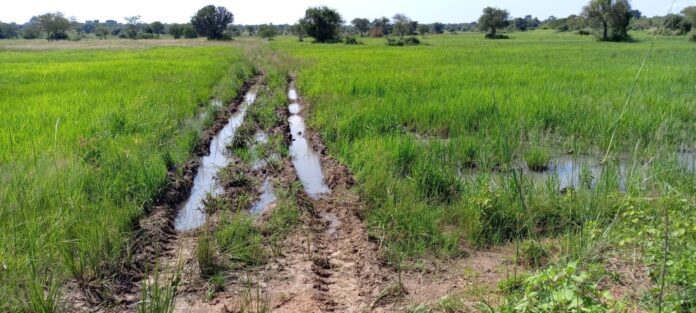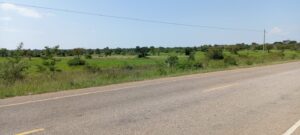
In recent years, Katakwi has witnessed a dramatic transformation in its natural landscape. The once-thriving region blessed with rich wetlands and diverse ecosystems now faces significant environmental degradation.
According to a reliable source who preferred anonymity, this shift is largely attributed to the reckless actions of those in positions of authority who have exploited these crucial resources for personal gain, undermining both the law and the well-being of the community.
Wetlands are not merely scenic landscapes; rather, they are vital ecosystems that provide numerous environmental benefits. They serve as natural water filters, flood buffers, and habitats for diverse wildlife. However, the disturbing trend of utilizing these wetlands for large-scale agricultural ventures, particularly rice cultivation, has led to widespread damage. Heavy machinery has been employed to clear and convert these lands, stretching over 50 acres, which not only disrupts the ecological balance but also contributes to the loss of essential natural habitats.
A notable example of the misuse is the wetland adjacent to Katakwi town council, yet it’s a site of significant ecological importance. This wetland has been subject to unsustainable practices. Despite the clear regulations against such practices, the activities persist, undermining both environmental laws and the principles of conservation.

Much as the residents have voiced their concerns about the ongoing destruction of wetlands, highlighting the inconsistency between what leaders advocate and their actual practices, the would-be role models for environmental stewardship have instead become symbols of hypocrisy, who preach about the importance of conserving wetlands while simultaneously engaging in activities that exacerbate their degradation.
Read Also: Uganda Gov’t to Imprison, Fine Offenders as Crack Down on Wetland Encroachment Intensifies
The recent flooding in Katakwi by rains and water flow from Karamoja emphasizes the urgent need for effective wetland management. The floods led to significant damage to homes and livelihoods, emphasizing the direct link between environmental mismanagement and human suffering. When preserved and properly managed, wetlands act as natural buffers against such disasters, absorbing excess water and reducing flood risks.
In response to these pressing issues, there is a growing call for stricter enforcement of environmental regulations. The National Environmental Management Authority (NEMA) introduced the Express Penalty Scheme, which aims to deter environmental violations through substantial monetary fines.
However, the scheme, implemented to curb non-compliance and prevent further degradation, must be rigorously enforced to hold accountable those who misuse and damage our precious wetlands.
It is important that all stakeholders—government agencies, community leaders, and residents—collaborate to safeguard these critical ecosystems. Leaders must lead by example, adhering to the laws they promote and ensuring that their actions align with the principles of conservation. The community’s role in advocating for and participating in environmental protection cannot be overstated; public pressure and active involvement are essential in driving meaningful change.
John Baptist Emukoki (Communication Officer of Katakwi District)














